The year 2025 presents a compelling canvas for real estate investors. But as market dynamics shift—from rising interest rates to evolving work‑from‑home patterns the critical question remains: Should you invest in commercial or residential real estate?
In this post, we’ll break down the current landscape, explore the pros and cons of each asset class, provide actionable insights, and highlight how a real estate agent near you, like Around Town Realty, can help you navigate this pivotal decision.
Table of Contents
Market Outlook in 2025
- Commercial real estate is facing mixed signals. Some office spaces are under pressure due to hybrid work trends, while industrial and logistics properties are booming thanks to continued e‑commerce growth.
- Residential real estate remains robust in many regions, especially in growing urban and suburban areas. Demand for rental properties continues strong, driven by demographic trends and homeownership affordability hurdles.
Advantages of Residential Real Estate
- Stable demand: People always need places to live. Rentals and homes for sale continue to attract a wide pool of tenants or buyers.
- Diversified tenant base: Single-family homes and small multifamily buildings minimize risk if one tenant exits.
- Financing flexibility: Residential loans (especially for 1–4 units) are often easier and cheaper to obtain for individual investors.
- Easier entry for new investors: Smaller price tags and less complexity make residential real estate an excellent starting point.
Opportunities in Commercial Real Estate
Why pay for a gym membership when your apartment complex already offers a fully-equipped fitness center? Many also include yoga spaces, jogging tracks, and meditation rooms to encourage a healthy lifestyle right at your doorstep.
- Logistics and industrial: Warehouses, distribution centers, and cold storage are in high demand, driven by e‑commerce and supply chain realignment.
- Retail (reimagined): While traditional malls struggle, experiential retail, mixed‑use centers, and convenience-driven outlets are adapting well.
- Office space recovery: Hybrid work models are still evolving. Buildings offering flexible, amenity-rich, and health‑conscious environments are seeing renewed interest.
Opportunities in Commercial Real Estate
- Logistics and industrial: Warehouses, distribution centers, and cold storage are in high demand, driven by e‑commerce and supply chain realignment.
- Retail (reimagined): While traditional malls struggle, experiential retail, mixed‑use centers, and convenience-driven outlets are adapting well.
- Office space recovery: Hybrid work models are still evolving. Buildings offering flexible, amenity-rich, and health‑conscious environments are seeing renewed interest.
Risks to Consider:
- Leasing terms and tenant quality vary widely.
- CapEx and maintenance can be substantial.
- Market cycles and vacancy risks may hit harder than in residential sectors.
Side-by-Side: Commercial vs Residential
| Aspect | Residential | Commercial |
|---|---|---|
| Demand Stability | High (broad tenant base) | Variable (sector-dependent) |
| Entry Cost | Lower — easier financing | Higher — greater capital and complexity |
| Revenue | Steady, often monthly | Potentially higher, but more volatile |
| Management Style | Hands-on, routine | More passive, professional management |
| Growth Potential | Strong in growth corridors | Strong in industrial/logistics or niche |
What’s Trending Right Now?
- Hybrid and flexible office solutions: Co-working and leased spaces with hybrid-friendly designs are gaining traction.
- Sustainable residential developments: Green buildings and energy-efficient homes are increasingly appealing to eco-minded tenants.
- Industrial estates near infrastructure hubs: Closeness to highways, ports, and logistics corridors provides a competitive edge.
- Mixed‑use projects blending residential properties, office, and retail are gaining momentum, offering diversification in one investment.
How to Decide What’s Right for You
- What’s your investment horizon– long-term income vs quick appreciation?
- What’s your risk appetite- stable residential rents or higher-return commercial plays?
- Do you prefer hands-on management (residential) or a more passive, outsourced approach (commercial)?
- Are you looking to diversify- perhaps combining both asset types in your portfolio?
The Role of a Local Expert
Navigating the nuances of both commercial and residential markets in 2025 can be overwhelming. That’s where a real estate consultant company becomes invaluable. A trusted partner helps you:
- Analyze local market trends for neighborhoods, rental yields, or vacancy risks.
- Source off‑market deals and connect with reliable tenants.
- Structure financing options tailored to your investment type.
- Manage properties efficiently or tie yourself to professional operators.
Conclusion
So, where to invest in 2025? The answer depends on your goals:
- Choose residential real estate for stability, easier entry, and consistent cash flow.
- Consider commercial real estate—especially in industrial, mixed‑use, or reimagined office space—for potentially higher returns.
Looking for expert guidance tailored to Ahmedabad, Gujarat, or nearby areas? Around Town Realty, your trusted real estate consultant company, is ready to help you evaluate opportunities and make smart investments. Reach out to us at +91‑78747‑36333. We’d be thrilled to walk you through your next move.









